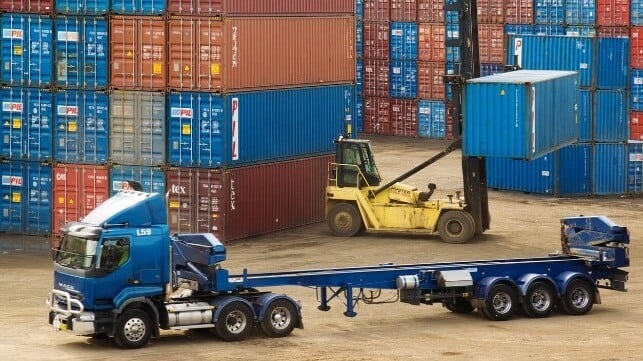Australia's Competition Regulator Faults Stevedoring Firms for Inflation

This year has particularly been challenging for containerized cargo shippers, with geopolitical factors and low water levels in Panama Canal destabilizing supply chains. But these disruptions - combined with domestic shipping challenges - have seen some countries bear the brunt of high inflation, and Australia is among the nations most affected. In its annual report, the Australian Competition and Consumer Commission (ACCC) singled out supply chain disruptions as a major pain point for consumers in 2024. Some importers in Australia had to pay four to 11 times as much for ocean freight as a year earlier, according to the report.
“It’s been a difficult time for businesses dependent on the container freight supply chain, which in turn affects consumers and impacts the Australian economy through higher costs and shipping delays. We have found there are likely market failures in the container supply chain which may warrant a policy or regulatory response,” said Anna Brakey, ACCC Commissioner.
Specifically, the ACCC report raises concerns about the limited competition on landside charges charged by stevedores and empty-container storage yards.
The report found out that stevedores and empty-container yards enjoy massive market power, giving them little incentive to discount their charges to transport operators. Over the last seven years, stevedores in Australian ports have reportedly hiked their landside charges far beyond any increases in operating cost. For instance, between 2016-17 and 2023-24, real stevedoring industry total revenue per lift has increased by $45 per container (22.6 percent), while real stevedoring industry total costs per lift have increased by $15 per container (8.9 percent).
“Stevedores appear to be able to raise landside charges more easily than charges to shipping lines, as importers and exporters are constrained in their capacity to respond to increases,” added Ms Brakey.

that matters most
Get the latest maritime news delivered to your inbox daily.
In a similar pattern, the empty-container yards have also significantly hiked prices since 2008. In Sydney for example, fees have increased from $3 per container in 2018 to $112 per container in the first half of 2024.
According to ACCC, these price hikes are uncompetitive and a sign that government scrutiny could be warranted.
